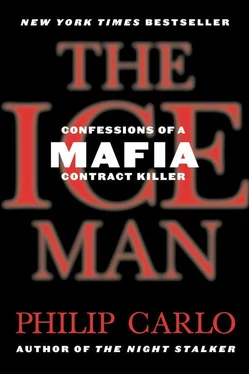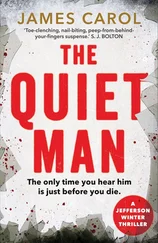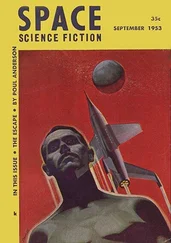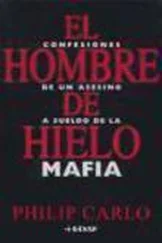“Where is he?” Roy asked.
“There, but I don’t understand—what’s this all about? Why’d you bring your army?”
Before Roy could answer, Richard watched Rothenberg get out of his car and start toward the alley, moving quickly, looking over his shoulder, fear about his face.
“He spotted you,” Richard said, pissed off. He stuck the .38 into his pants, got out of the van, and went after Rothenberg, who now began to run into the alley. When Richard reached the alley, he pulled out the .38, aimed carefully, fired two times, and dropped Rothenberg. He hid the gun, turned, and made his way back to the van.
Roy approached him. “Fuckin’ great shot, Rich,” he said, smiling.
“Yeah,” Richard said, getting into his van, keeping his anger to himself.
“You mad, Rich?”
“Roy, come on, I just popped someone, I want to get the fuck outta here,” Richard said, and pulled away.
Richard got lost but soon found his way to the Belt Parkway and headed for home, thinking that Roy DeMeo was nuts, that he had watched too many gangster movies. And Richard didn’t like the fact that three other guys had seen the hit; this was still another thing Richard had against Roy DeMeo. The list was growing.
As Richard drove back to his family, a man in a red Mustang cut him off. Richard pulled up alongside the red Mustang and began to curse the guy, made a fist at him. The driver of the Mustang gave Richard the finger. Incensed, Richard followed him off the parkway and caught up with him at a light. Just the two of them were there. The guy jumped out of his car. Richard shot him dead, made a turn, and left him there by his car, another unsolved murder done by Richard. With no witnesses and no apparent motive, the police could do nothing. He soon dropped the .38 in a creek, but he kept the silencer. He had used the gun to kill two people within the span of forty minutes.
Richard returned home, had a turkey-on-rye sandwich, sat down in the living room, and watched TV with Barbara. The children were sleeping.
Angry, serious-faced detectives immediately went and picked up Roy DeMeo and questioned him about Paul Rothenberg’s murder. He had nothing to say other than his name and address. Anthony Argrila—lucky for him—had been boating when his partner was murdered by Richard. He swore he knew nothing about Roy DeMeo, nothing about anything, said that his partner had “a lot of dealings with people I know nothing about.”
“Truth is,” he told skeptical detectives, “he dealt with people I never even met. Truth is, I think, no I’m sure, he was stealing from me, you know,” he said.
However, the police trailed Tony Argrila and actually saw him meet with DeMeo several times, proving that he lied through his teeth; but there wasn’t much they could do about it at this point.
More than anything in the world, Roy DeMeo wanted to be made, and he was hoping this murder would do the trick. A big smile about his pudgy, dark-eyed face, Roy went to Nino Gaggi at his Bensonhurst home on Cropsy Avenue and proudly told his boss, hopefully his sponsor—the man that could have him inducted into the Gambino family—that Rothenberg was dead, and that he’d actually seen him go down. Gaggi wanted all the details, which Roy gladly regaled him with.
“Good, good job!” Nino told Roy, proud of him. How quickly he had disposed of this potentially serious problem. He hugged and kissed Roy, as is the custom. Little did Nino Gaggi know that Roy DeMeo would soon bring the world crashing down on his balding head.
Richard did not ask for or receive any payment for this hit. It was a favor. But Roy later told him, “The slate’s clean between us,” forgiving fifty thousand dollars Richard owed Roy for porn. All nice and neat and tidy, it seemed.
31. Lady and Pouilly-Fuissé
Barbara Kuklinski both dreaded and looked forward to weekends. Though she never knew when Richard would be home—he often left the house without any notice, at the drop of a dime, at all times of the day and night—she tried to make plans that included him. Barbara enjoyed getting dressed up and going to nice restaurants, enjoyed good food, good company, good conversation. Unlike her mother, Genevieve, Barbara was outgoing and gregarious and liked the company of friends and other couples on Friday-and Saturday-night outings. In this she was just like her father.
When they went out, Richard always ordered the best of everything. Money was no object. As far as he was concerned money was for spending, and he spent as if he had a tree in the backyard that grew crisp new hundred-dollar bills every time you watered it. Chateaubriand, lobster, three-hundred-dollar bottles of wine, were the norm. Richard also enjoyed putting on hand-tailored suits, silk ties, expensive Italian shoes. Barbara picked out most of his clothes. He trusted her taste; he trusted her social graces and direction. If another couple joined them, as often happened, Richard picked up the tab. He wouldn’t let anyone else pay. Barbara tried to explain that he didn’t have to pay every bill, that it was okay to split tabs or let others pay. But he didn’t see it that way, and her words fell on deaf ears.
Barbara didn’t know where all the money was coming from. She figured he had finally found his way in business and didn’t question him. If she had questioned him, his answer would have been a blank stare, a stone face, as though he hadn’t heard her. Barbara learned to accept, like everything else, her husband’s tight lips… and generous ways. When Barbara and Richard went out for a night on the town, he was usually quiet, didn’t talk much. He just sat there, taking everything in. Barbara, however, talked enough for both of them, and that was fine with him. She’d even answer questions for him. Richard now only drank a little wine. He knew hard alcohol made him mean and he had the good sense to steer clear of it. He was mean enough without it.
Richard was not only generous, he could be amazingly considerate, an incorrigible romantic. He had, for instance, nicknamed Barbara “Lady” and regularly called her that, and he’d arrange for Kenny Rogers’s song “Lady” to be playing when they entered favorite restaurants—Palosadium, Archer’s, Over Rose’s Dead Body, Le Chateau, and Danny’s Steakhouse—and he made sure Barbara’s favorite wines, Montrachet and Pouilly-Fuissé, were in fancy ice buckets next to their table. He even arranged for freshly cut long-stemmed red roses to be placed on their table before they arrived.
Nothing was too good for Lady.
This Richard—the good Richard—Barbara loved in her own quiet way. The other Richard, however, she had grown to hate, and often the bad feelings she harbored for him far outweighed the good ones. Like a pendulum, her feelings swung back and forth—love, hate; love, hate.
When they dressed up and went out, Richard was usually polite, a gentleman. But he was obsessively jealous. If a waiter or any man paid too much attention to Barbara or stared at her, Richard’s face iced over, and he didn’t have the slightest compunction about becoming rude, aggressive… even violent. More than ever he viewed Barbara as his personal property, a treasured bauble, and it was a dangerous enterprise, paying her too much attention.
One Saturday evening they went to a movie in Dumont. As they were leaving, Richard abruptly walked away from Barbara, went over to some guy Barbara didn’t even notice, and demanded to know why he was staring at Barbara. The man told Richard he was crazy; that he wasn’t staring, to “shove it.” Richard punched the guy and knocked him out cold.
“Why, Richard?” Barbara asked when they got outside.
“I saw him staring disrespectfully. ”
Читать дальше












